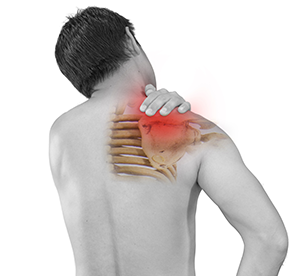Expert Frozen Shoulder Treatment in Vadodara
Break free from shoulder stiffness and pain. Restore your shoulder mobility and function with specialized chiropractic care for adhesive capsulitis.

Understanding Frozen Shoulder
Frozen shoulder, medically known as adhesive capsulitis, is a condition characterized by stiffness and pain in the shoulder joint
What is Frozen Shoulder?
Frozen shoulder occurs when the shoulder capsule, the connective tissue surrounding the shoulder joint, becomes thick, tight, and inflamed. This leads to the formation of adhesions (scar tissue) that significantly restrict movement and cause pain.
- Freezing Stage - Gradual onset of pain that worsens over time, with increasing stiffness and limited range of motion
- Frozen Stage - Pain may decrease but stiffness remains, making daily activities extremely difficult
- Thawing Stage - Gradual return of shoulder motion over several months to years without treatment
- Idiopathic Causes - Often develops without specific injury, more common in women and people aged 40-60
- Secondary Causes - Can follow shoulder injuries, surgery, or periods of immobilization
- Systemic Factors - Higher incidence in people with diabetes, thyroid disorders, or Parkinson's disease
Early intervention with proper chiropractic care can significantly shorten recovery time and prevent long-term mobility issues.

Recognizing Frozen Shoulder Symptoms
Frozen shoulder typically progresses through distinct stages with characteristic symptoms
Progressive Stiffness
Gradual loss of both active and passive shoulder movement, particularly with reaching overhead or behind the back.
Night Pain
Significant pain that disrupts sleep, especially when rolling onto the affected shoulder or trying to find comfortable positions.
Functional Limitations
Difficulty with daily activities like dressing, brushing hair, reaching for seatbelts, or carrying objects.
Global Movement Restriction
Limited range in all directions - flexion, extension, abduction, and both internal and external rotation.
Our Frozen Shoulder Treatment Approach
Comprehensive, stage-specific care to break the cycle of pain and stiffness
Diagnostic Assessment

Range of Motion Testing
Detailed measurement of active and passive shoulder movements to quantify stiffness and track treatment progress.

Functional Movement Analysis
Assessment of how shoulder stiffness affects daily activities and identification of compensatory movement patterns.

Muscle Integrity Evaluation
Testing of rotator cuff and scapular muscles to identify weaknesses or imbalances contributing to the condition.
Our Treatment Methods

Joint Mobilization
Specific, graded movements to restore normal joint arthrokinematics and break down adhesions in the shoulder capsule.

Myofascial Release
Gentle sustained pressure to release tension in the connective tissue surrounding the shoulder joint and muscles.

Trigger Point Therapy
Dry needling and manual techniques to release hyperirritable spots in shoulder muscles that refer pain.

Progressive Stretching
Stage-appropriate stretching exercises to gradually restore range of motion without exacerbating inflammation.

Scapular Stabilization
Exercises to strengthen the muscles that control shoulder blade movement, providing better shoulder joint support.

Home Exercise Program
Customized daily exercises and self-mobilization techniques to maintain gains between treatment sessions.
Patient Success Story
Real results from our frozen shoulder treatment
"I developed frozen shoulder after a minor fall and within months, I couldn't raise my arm above my shoulder or sleep through the night due to pain. Simple tasks like putting on a shirt became impossible. After starting treatment at Spine-X, I saw improvement within weeks. The gentle joint mobilizations and specific exercises gradually restored my mobility. Now, after 3 months of treatment, I have nearly full range of motion back and can sleep comfortably again. Dr. Zinzala's expertise in frozen shoulder treatment truly changed my life."
- Patient from Vadodara (Frozen Shoulder Treatment Success)
Managing & Preventing Frozen Shoulder
Proactive strategies to maintain shoulder health and prevent recurrence
Early Movement After Injury
Begin gentle range of motion exercises as soon as possible after any shoulder injury or surgery to prevent stiffness.
Regular Shoulder Exercise
Maintain shoulder flexibility and strength through regular exercises that move the joint through its full range.
Manage Underlying Conditions
Properly control diabetes, thyroid issues, and other systemic conditions that increase frozen shoulder risk.
Proper Sleeping Positions
Avoid sleeping on the affected shoulder and use pillows to support the arm in a relaxed position.
Heat Therapy
Use warm showers or heating pads before stretching to relax muscles and improve tissue elasticity.
Consistent Home Program
Follow prescribed home exercises consistently, even after symptoms improve, to maintain shoulder mobility.
Ready to Regain Your Shoulder Mobility?
Start your journey to pain-free shoulder movement with our specialized frozen shoulder treatment
70% Faster Recovery Time
Most frozen shoulder patients experience significantly improved mobility within 3-6 months compared to 1-3 years without treatment